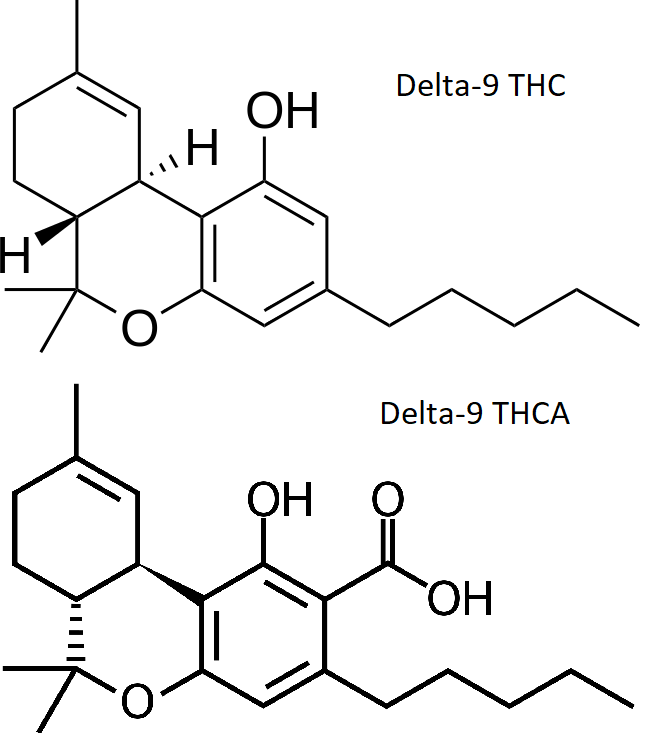
By J Gordon Curtis
If you’ve ever spent time researching the effects of cannabis, you’ve likely bumped up against the term THCA. Tetrahydrocannabinolic Acid, or THCA, is a precursor to THC that occurs naturally in the cannabis plant.
If you’ve ever tried making edible brownies, you’ve probably gone through the process of decarboxylation. Decarboxylation usually involves placing the flower in the oven at low temperatures. This gently heats the flower, converting the THCA into Delta-9 THC. This step is a necessity for edibles as the fresh flower form of cannabis contains mostly THCA.
We do a rapid version of the same thing when smoking cannabis. This instance uses the fire of a lighter to heat the material and rapidly decarboxylate it.
Tne study found that THCA would partially convert to THC in temperatures as low as 39 degrees Fahrenheit. As such, it’s very difficult to produce and store in a way that ensures no degradation.
What’s the research say on THCa?
As a natural and well-known cannabinoid, THCA has been the subject of several studies. The study mentioned above was regarding the anticonvulsant effects of THCA. It found that the cannabinoid helped to prevent seizures in mice.
This is just the start. Numerous studies have found great benefits for this molecule. One of these found THCA to be helpful as a neuroprotective agent.
Interestingly, one study found it to be a better tool for anti-nausea than Delta-9 THC. There is also some research showing the potential to assist in digestive and metabolic functions. This is mostly due to the unique mechanism of action for THCA.
We’ll get into it more fully below but, research-wise, there’s one big point. That is a report that found interesting potential in THCA for obesity-related health problems.

Molecular Differences Between THC & THCa
The molecular structures are similar but the way that they work is very different. Unlike THC, THCA doesn’t have much of an affinity for either of the endocannabinoid receptors. Instead, THCA works on a system known as the PPARγ (P-P-A-R-Gamma) pathway.
This pathway handles the regulation of fatty acids and is the main reason for metabolic research. One thing this mechanism does within us is increasing our sensitivity to insulin through the regulation of fatty acids. THC also interacts with these receptors but primarily sticks with the endocannabinoid system.
Will THCa Make Me High?
No, THCA will not get you high. THCA is non-intoxicating and will not produce that effect. However, THCA does readily change into Delta-9 THC which is intoxicating.
Particularly in instances where THCA is present in smoked flower, the heat of a lighter will convert it to THC. As such, consumers should be careful how they consume this molecule as the conversion of it to the intoxicating form is so readily available. You can order THCa flower from our online dispensary and see for yourself.
Many consider raw cannabis flower to be a superfood. THCA is the reason for that. The cannabinoid has a host of benefits and doesn’t lead to inebriation. This makes it the perfect option for someone who wants to harness some of the benefits of the plant without the intoxicating effects.
Visit Our Dispensaries
Latest Post

Is Delta-8 Legal In Nashville, TN?
Delta-8 is a hot topic right now, but with so much information out there, it can be hard to know what to believe. That’s why we’re here to help! In this blog post, we’ll cover everything you need to know about Delta-8, from what it is to how it works to where you can buy it.

